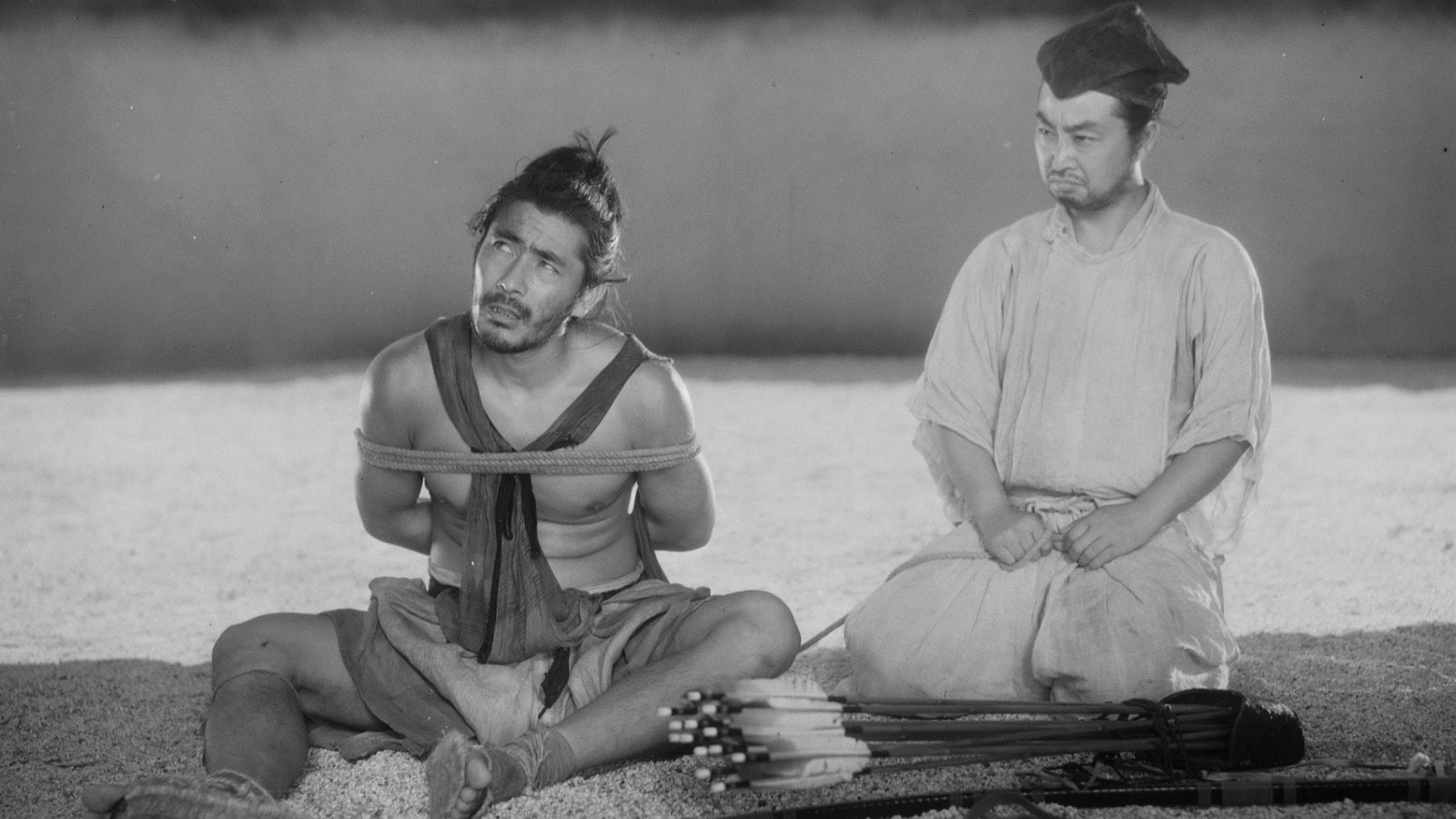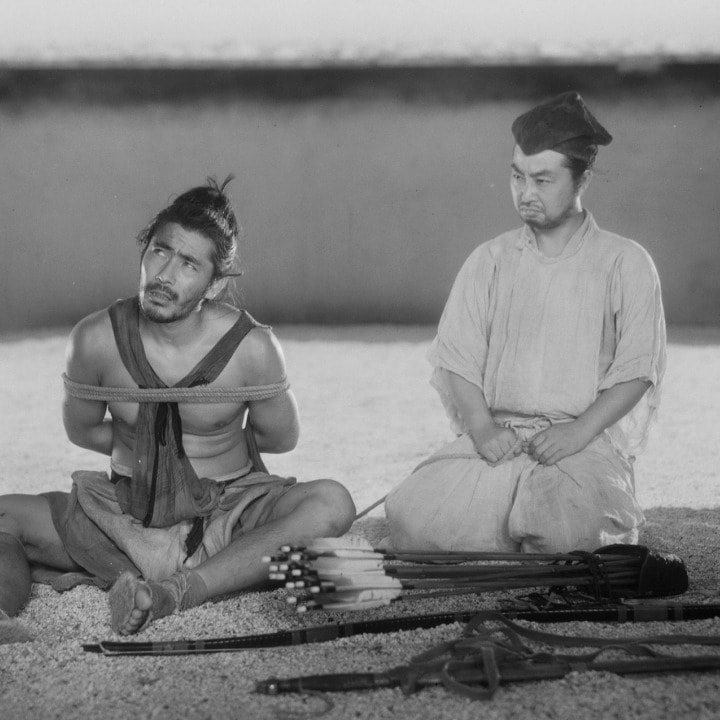Akira Kurosawa’s masterpiece about the subjectivity of truth, which led to Western audiences discovering the Japanese filmmaker
Rashomon (1950) was the first non-European film to win the Golden Lion at the Venice Film Festival and then an Oscar for Best Foreign Film. It marked the beginning not only of Akira Kurosawa’s international fame but also mass interest in Japanese culture and Asian film.
Eleventh-century Japan. The body of a samurai is found in the woods. His wife has been raped. The bandit accused of these crimes has been caught and does not deny his guilt. But every participant has their own version of what happened.
The film, in which Kurosawa combined two stories by the Japanese writer Ryunosuke Akutagawa — «In a Grove» and «Rashomon» — initially got a cold reception in Japan, but in the end it became a canonical movie and even gave its name to an effect linked to the inaccuracy of witness evidence and the contradictoriness of subjective interpretations. «How many people told this story? And how many of them lied?» asks one of the characters in Rashomon. In Akira Kurosawa’s film everyone lies, even those who are dead, in order to present themselves in a better light. Each interpretation suggests not only a new narrative but a new subjectivity of perception, skilfully underlined using differences in form, visual accents, and the detail of the actors’ performances. The visual aesthetic of the film revealed the director’s love of silent movies. Legend has it that during filming a group approached Kurosawa, opened the script and asked him what it all meant. His answer went down in history. He said that the film is a reflection of life, and that life does not always have a simple and comprehensible meaning. Even so, it is important to understand that Rashomon is also a reflection of the situation in postwar Japan, with its moral relativism. It has become commonplace to underline Kurosawa’s Europeanism, and his oeuvre does include screen adaptations of Dostoevsky, Tolstoy, Shakespeare, and Gorky. But it is possible that the existentialism that pervades the philosophy of Rashomon and his other films was closer to his historical experience. Which does not contradict his loyalty to national traditions from near and far.
The film will be shown in Japanese with Russian subtitles.
Rashomon
Director Akira Kurosawa
Japan, 1950. 88 min. 18+

